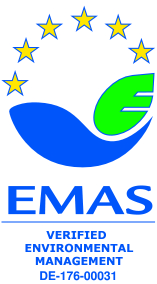New Comitology after Lisbon
- Exercise of Delegated and Implementing Powers
- Brussels briefing
|
, 16 February 2011 |
|
|
Language: |
|
|---|---|
|
Event number: |
411F01 |
 |
|
|
Areas of law: |
|
|---|
12:30-14:30
Maison du Grand-Duché de Luxembourg, Avenue de Cortenbergh, 75, B-1000 Brussels
On 1 March 2011 a Regulation laying down the rules and general principles concerning mechanisms for control by Member States of the Commission’s exercise of implementing powers, approved by the European Parliament last 16 December, will enter into force.With the Lisbon Treaty the so-called “Comitology system” was abolished, and the Treaty instead distinguishes between "delegated“ acts (Article 290 TFEU) and "implementing“ acts (Article 291 TFEU), subject to entirely different legal frameworks. The provisions of the new Treaty on delegated acts are sufficient in themselves and do not require any legal steps to make them operational. On the contrary, a legal framework was required to establish the mechanisms for the control of the Commission’s exercise of implementing powers, which is what the new Regulation aims to do.
In particular, the Regulation provides for a simplified system with only two procedures for the implementation of EU legislation:
- an “advisory procedure” where Member States give non-binding advice to the Commission, as the ordinary procedure, and
- an “examination procedure” – with Member States’ veto rights – for matters such as agricultural policy, environmental policy, commercial policy and taxation.
- Does it make adoption of implementing measures easier?
- Will the veto power often be used?
- What implications will it have for stakeholders working with the system?
- How will the new system influence trade policy?
Speakers
Eugenia Dumitriu-Segnana, Legal Service, Council of the European UnionAnders Neergaard, Legal Service, European Parliament
Mario-Paulo Tenreiro, Secretariat General, Institutional Questions, European Commission
Anna Piesiak, Institutional and Legal Section, Polish Permanent Representation
Registration fee (including documentation and refreshments)
Standard: € 50 EU officials and members of the 'Friends of ERA' association: € 0

Programme

Important note
EVENT FULLY BOOKED. To join the waiting list in the event of cancellations, please contact Julia Degen at the link below.





